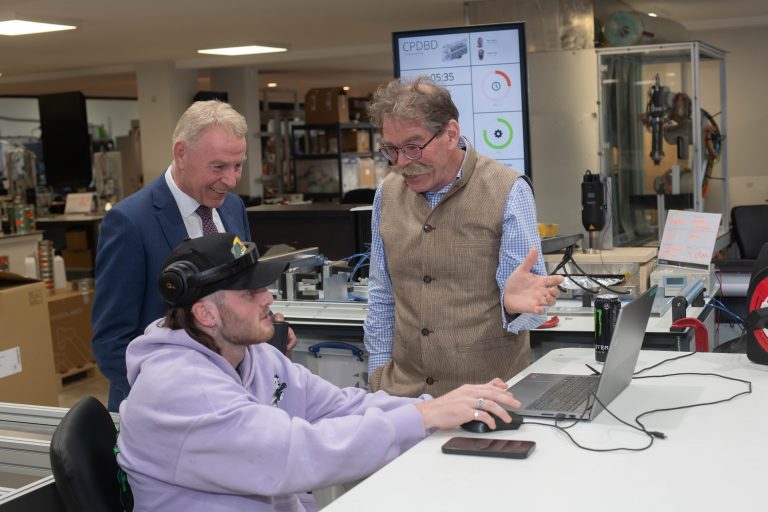A drive to keep local talent in North Yorkshire has seen one of the county’s most successful home-grown businesses place young people at the heart of its operations.
Six new apprentices joined the workforce at Labman in Seamer, near Stokesley, last month, bringing the total to 18 over the last five years.
The move supports North Yorkshire Council’s ambitions to widen the county’s economic base, providing jobs for the younger generation rather than seeing them having to move on to larger cities to enhance their careers.
In 2025, further expansion at Labman’s site will be completed, providing capacity for 150 more staff. Labman are looking to hire 50 of these new employees in the next 12 months to add to the current 150-strong team.
Managers at Labman believe that employing apprentices and encouraging higher level qualifications within their team is one of the keys to its success as a global leader in producing advanced custom lab technologies, products and software to enable and enhance science across a range of industries.
On top of the apprentices, seven current employees have been supported in higher-level apprenticeships and another eight staff have been, or are currently, studying degrees or masters programmes funded by the company.
On a visit to the site, North Yorkshire Council’s chief executive, Richard Flinton, said: “Labman believe wholeheartedly in the training of the next generation. They have shown consistent commitment to internships and placements, apprenticeships and degree apprenticeships, and graduate schemes.
“This is a really successful homegrown North Yorkshire business working globally in exciting, innovative technology which is keen to employ and develop local people. We encourage all businesses to look to the apprentice market to help us stop the drain of talent to other cities by broadening the economic base with more diverse industries.
“Labman is a good example of this. It is great to see an innovative industry at the cutting edge of high-tech problem solving based in our county.”
Labman’s managing director, Andrew Whitwell, added: “We strongly believe in the value of hands-on engineering experience to thrive in this industry. While academic routes provide crucial knowledge, many engineers develop their skills through more vocational learning.
“We actively collaborate with local schools and colleges, attending career fairs and supporting after-school activities. These efforts allow us to attract the best talent and retain it, both for the benefit of North Yorkshire and the North-East, as well as for our own growth.
“Most of our apprentices remain with us after completing their programmes, some moving on to higher level qualifications while others find full time work with us.”
The six new apprentices, including Louis Thomas, Lewis Gustard and Oliver Hayes, are focusing on electrical and mechanical engineering and include recent GCSE graduates and those who have completed Level 3 qualifications in engineering or are retraining after working in other industries.
Nineteen-year-old Louis from Great Ayton started working at Labman in March, beginning his apprenticeship last month. He finished school to study a physics degree but soon left university to pursue an apprenticeship instead.
He said: “In the short time I’ve been at Labman I’ve not only massively advanced my practical understanding of engineering, but also learned so much about myself and what I am truly passionate about.
“The sense of self-fulfilment I get from working on real projects for real companies is unlike anything I ever felt as a full-time student.”
His colleague, Lewis Gustard, aged 18, of Ingleby Barwick, who started his apprenticeship two years ago, added: “As an apprentice at Labman I’m excited to be part of a team that is shaping the future of science.
“Every day brings new opportunities to learn and contribute, and it’s incredible to see how our work is making a real impact. The fact that I can do this from a company that’s on my doorstep is the icing on the cake.”
The council is no stranger to apprenticeships itself, currently employing 323 people in schemes across the authority, the majority of whom are in adult social care, children’s services, teaching and social work.


